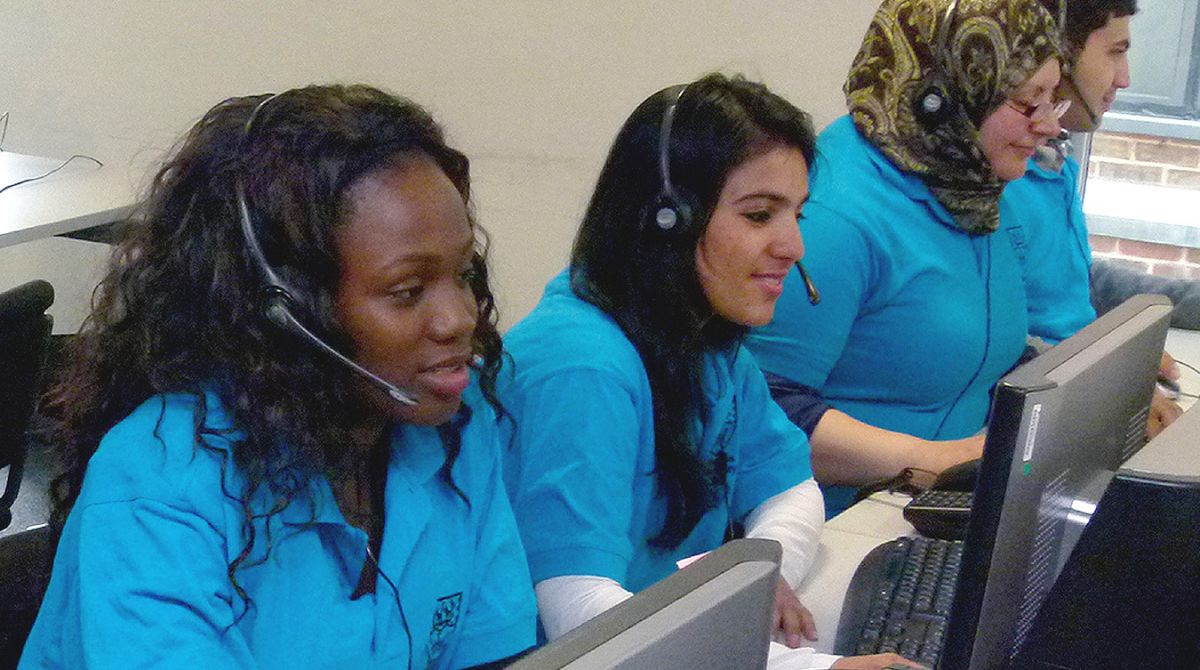Students urged to be prepared to secure a Kingston University place through Clearing
Posted Thursday 18 August 2016

Admissions staff are urging aspiring undergraduates to think ahead so they can be first in line to snap up one of the final few course places available through Clearing this year.
Director of Admissions Dr Andy Homer, who oversees Kingston University's annual confirmation and Clearing operation, recommends students look at their options carefully now results have been released. Those who narrowly missed the grades they hoped for or had changed their minds about courses would still find they had interesting choices open to them, he said. However, he stressed that they needed to be ready to act quickly. "Being well organised will be crucial for students who discover they need to get in touch with the University's Clearing hotline," Dr Homer said. "Giving careful thought to what they want to study, where they want to study and the characteristics of courses that particularly appeal to them will give them a real head start."
Prospective students should not panic if they discovered they needed to enter Clearing, Dr Homer advised. The University would have a dedicated team of 140 hotline staff on hand to guide eager applicants through the process. "Our operators are all handpicked and committed to ensuring everyone who phones in has the opportunity to thoroughly explore all the options available to them," he added. "Some of the operators are even students themselves, so they understand just how nerve racking A-level results day - and the all-important decisions that come with it - can be." Having the right details, such as their Clearing number, UCAS ID and full details of qualifications to hand, including subjects, grades, dates obtained and exam boards, would ensure students were able to get the most out of their calls, Dr Homer said.
He recommended students should think about aspects of university life they valued most. "I'd suggest listing everything they want to talk to university staff about on a piece of paper so they're all set to discuss each aspect with the hotline team. Accommodation, employability or access to clubs and societies are just some of the areas they might want to know more about."
It was also important for students to focus on a course and how it was taught rather than simply applying to a specific institution, Dr Homer added. "Most people perform better when they are completing a degree they have a genuine interest in and can see helping boost their career," he said. "Our academics are especially keen to hear from students who can demonstrate a real drive for furthering their knowledge and making the most of everything life on campus has to offer."
He suggested having a trusted friend and family member close by able to act as a sounding board was also something prospective applicants should consider. "Students calling the hotline will need to make significant decisions about their futures relatively quickly, so it's important they make the most of opportunities to reflect and discuss their thoughts with teachers, parents or other people they might turn to for support," Dr Homer said. "Most institutions will give a deadline for accepting an offer and, where possible, it's important for students to take a little time to think things through."
Employability is likely to be a strong factor in many students' decisions, Associate Professor Dr Deborah Anderson believes. She will be part of the admissions team helping students enrol for Kingston Business School's innovative programme of three-year integrated business degrees being launched this year. The new portfolio, which gives students extra opportunity to get vital, hands-on experience, offers up to nine months on a work or research placement, overseas study opportunity or business start-up project. "This will ensure graduates enter the workplace with the real-life experience employers expect these days while still also completing their degree within three years," Dr Anderson said.
As one of the academics manning the Clearing phones, Dr Anderson recommends that students conduct thorough research before they get dialling. "I'm eager to hear from applicants who have done a bit of homework, know about the modules on offer and have specific questions about the course," she said.
Callers would find the admissions team were sympathetic and supportive to their situation. "The main advice is to take a deep breath and be positive about the different types of options Clearing has to offer," Dr Anderson said. "We are there to provide information and guidance and the conversation is as much about making sure Kingston University is the right fit for an applicant as making sure we're finding the right student for a course."
An extra bonus for students applying to Kingston University through Clearing this year was the guarantee of an offer of accommodation in its halls of residence for any callers who accepted a place on 18 and 19 August. "Finding somewhere to live is often one of the most pressing concerns for students who find a degree place through Clearing so we hope we can help take some of the stress away from that aspect of students' decisions," Dr Homer said. "The University has a range of room types available in halls of residence at different prices. All are on or close to its campuses and are well connected to Kingston town centre."
